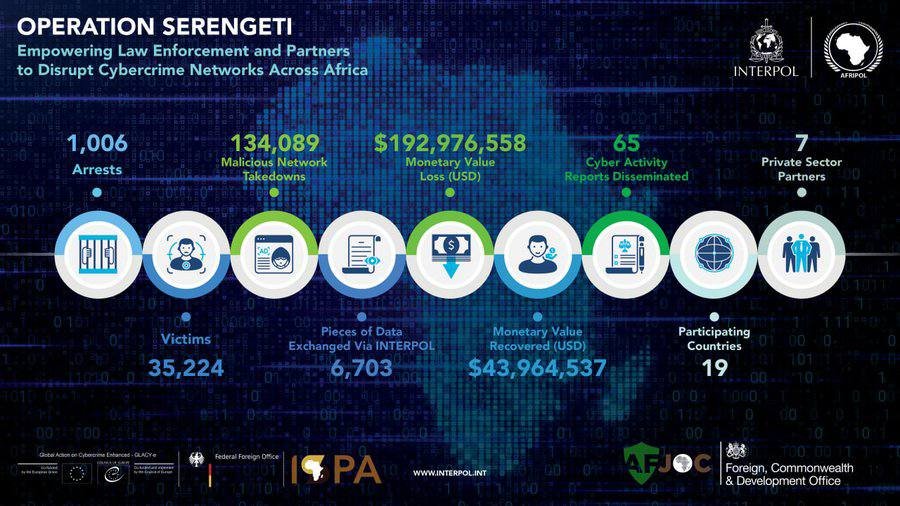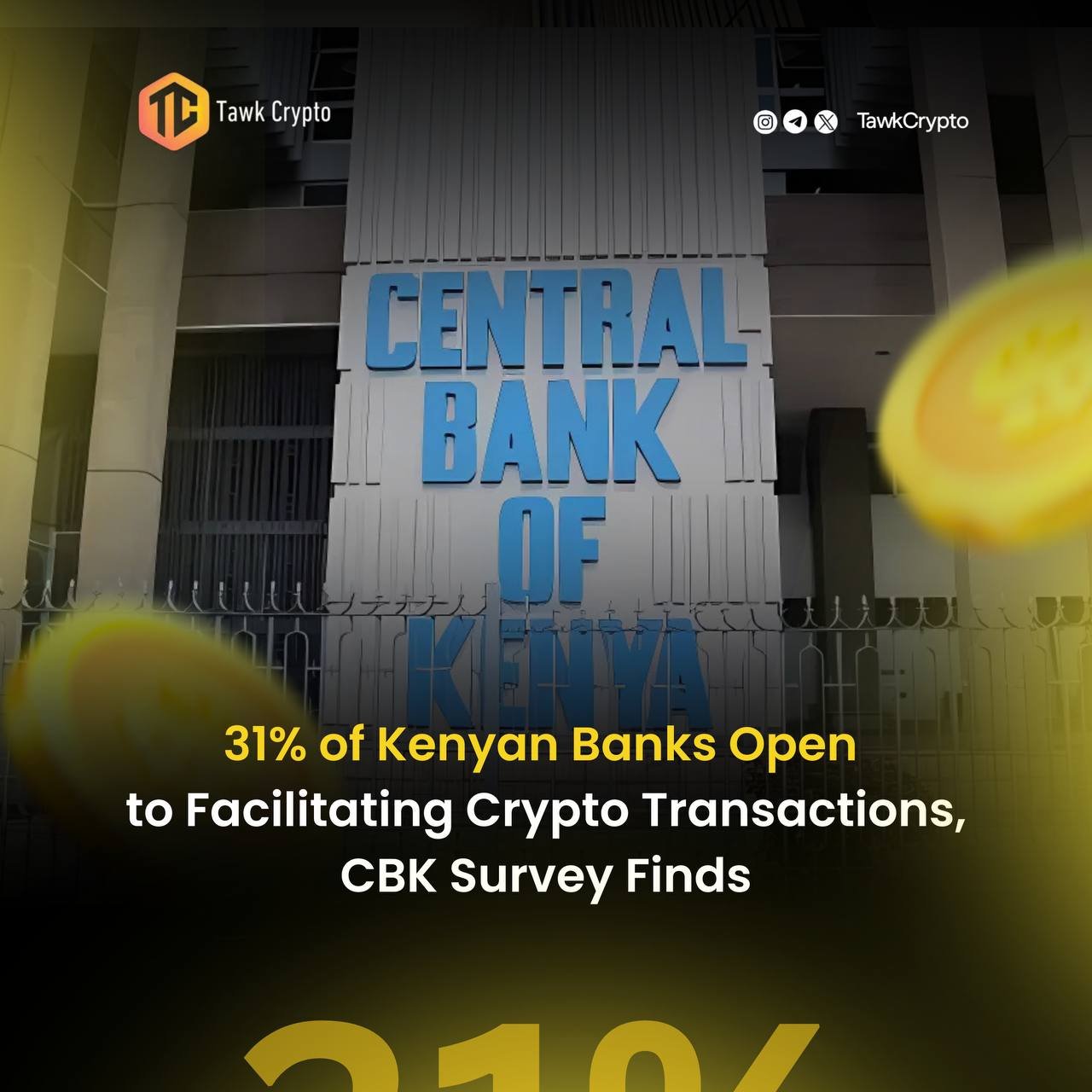

INTERPOL Cracks Down on Over 1,000 Cybercriminals Across 19 African Nations: $193M in Losses Linked to Digital Assets
In a groundbreaking operation dubbed “Operation Serengeti,” INTERPOL has successfully identified and apprehended over 1,000 cybercriminals operating across 19 African countries. The large-scale operation targeted some of the most sophisticated and damaging cybercrimes, including ransomware attacks, business email compromise (BEC), digital extortion, and online scams. These threats were flagged as major concerns in the 2024 Africa Cyber Threat Assessment Report, underscoring their widespread impact on financial systems and individuals.

Unveiling the Scale of the Damage
According to INTERPOL, the operation revealed over 35,000 victims of cybercrime, with financial losses amounting to $193 million globally. The criminals involved funneled stolen funds through a network of international channels, including digital asset institutions and cryptocurrency trading platforms.
Key Highlights from the Operation
- Kenya:
Authorities unraveled a complex case of online credit card fraud that led to $8.6 million in losses. Criminals exploited vulnerabilities in banking systems, using fraudulent scripts to siphon funds. The stolen money was quickly redistributed through SWIFT transactions to companies in the UAE, Nigeria, and China, and subsequently funneled into digital asset platforms regulated in multiple jurisdictions. - Senegal:
Law enforcement arrested eight individuals, including five Chinese nationals, involved in a $6 million Ponzi scheme that defrauded 1,811 victims. During the raid, authorities confiscated 900 SIM cards, $11,000 in cash, phones, laptops, and forged identification documents belonging to victims. - Nigeria:
Authorities apprehended a suspect running online investment scams, who allegedly amassed over $300,000 by deceiving victims with promises of cryptocurrency returns. Messaging platforms were used to target and manipulate victims, highlighting the need for tighter regulation of online financial schemes. - Cameroon:
Investigators dismantled a group involved in human trafficking and multi-level marketing scams. Victims, drawn from seven countries, were promised jobs or training opportunities but were instead held captive in Cameroon. They were forced to recruit others to secure their freedom. Preliminary estimates suggest the group collected at least $150,000 in membership fees. - Angola:
Authorities in Luanda shut down an international virtual casino operation targeting Brazilian and Nigerian gamblers. The platform lured victims with promises of shared winnings for recruiting new members. The operation resulted in 150 arrests, with investigators seizing 200 computers and over 100 mobile phones.
Digital Assets as a Key Focus
The operation revealed a disturbing trend: cybercriminals are increasingly leveraging digital asset institutions to launder stolen funds. Platforms offering cryptocurrency trading and financial services—often regulated across multiple jurisdictions—are becoming a preferred channel for redistributing illicit wealth.
Collaborative Action Across 19 Nations
Operation Serengeti was a coordinated effort involving law enforcement agencies from 19 African countries, including:
- Algeria
- Angola
- Benin
- Cameroon
- Côte d’Ivoire
- Democratic Republic of the Congo
- Gabon
- Ghana
- Kenya
- Mauritius
- Mozambique
- Nigeria
- Rwanda
- Senegal
- South Africa
- Tanzania
- Tunisia
- Zambia
- Zimbabwe
This cross-border collaboration highlights the importance of collective efforts in combating cybercrime, particularly as it becomes more interconnected through digital channels and decentralized technologies.
What’s Next?
The success of Operation Serengeti sets a precedent for future international cybercrime investigations. However, it also underscores the urgent need for more robust regulations in the digital asset space and improved cybersecurity measures to protect financial institutions and individuals alike.
As Africa’s digital economy continues to grow, so does the responsibility to safeguard it from increasingly sophisticated cyber threats. INTERPOL’s efforts mark a crucial step toward securing the region’s digital landscape, but there is still a long way to go.
Stay tuned to TawkCrypto for updates on how these developments will shape the future of digital assets, cybersecurity, and financial regulation in emerging markets.







